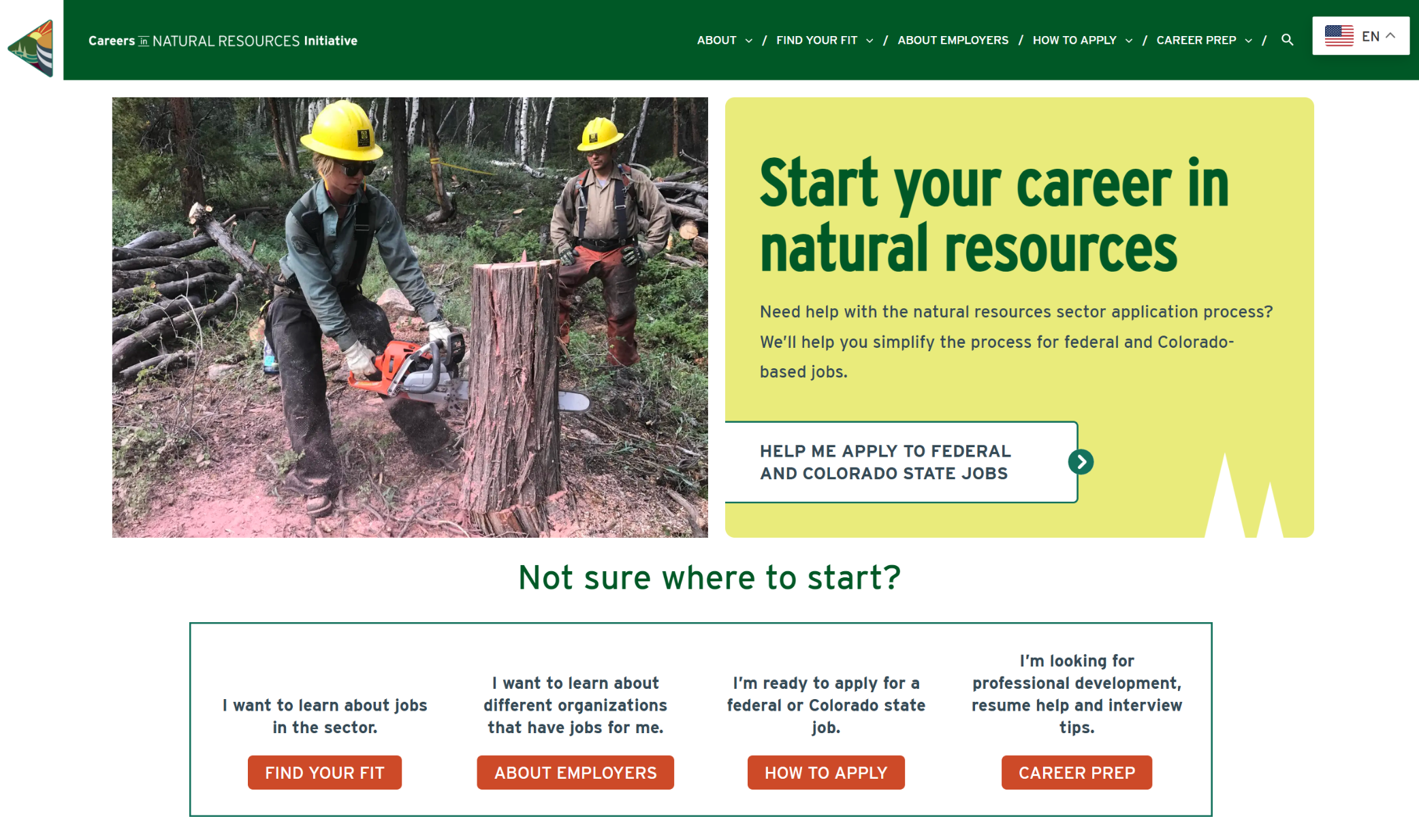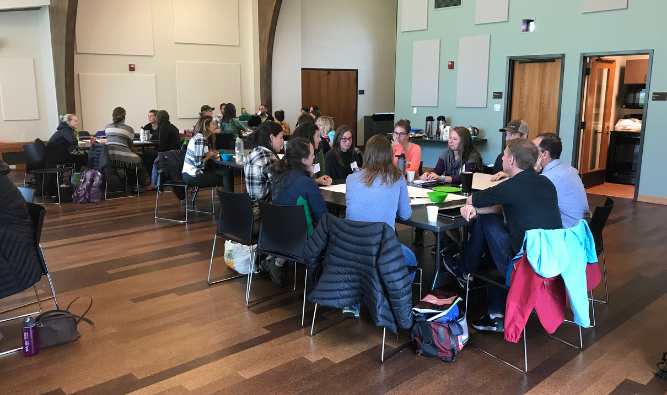Even through many job application processes try to take personal relationships out of the evaluation process, networking can still help you get a job. For many of us, the term “networking” seems daunting and maybe a little out of our comfort zone. You may think that this is one area you can skip. Don’t skip out on these opportunities! Even if you are shy, push yourself to get connected with the natural resource community. Networking can even be fun! You will be surprised who you will meet and where your conversations will take you. So be bold! Here are some ways to get started.
Get Educated
The first thing you want to do is to get educated about the organization you are interested in – find out about their mission, the work they do and the types of people that work there. Go beyond their website and search for news related to that agency or its work. You may even want to follow them on social media. Next, see if you can make a contact there and ask for an informal interview. This will help you further learn about the agency, understand the roles of the staff, get an honest perspective on the availability of jobs, and how to get the training or education you need to get there. During your informal interview, you may also be introduced to others in the office, furthering your network. Show them that you are passionate about their work by highlighting bits of information you learned from their website and news stories that particularly interested you. Although the organization may not be hiring at the time, these personnel connections will help you be informed of future job openings as they develop.
Volunteer/Intern
Another great way to build connections is through volunteering with an organization that interests you. Volunteer positions help you make new contacts and acquire skills. They can also serve to avoid holes in your work history. You can find many volunteer opportunities with Colorado organizations right here on this website!
Join a Professional Society or Organization
Have you heard of the Ecological Society of America? How about the Wildlife Society, Geological Society of America, Society for Conservation Biology or Society of American Foresters? These are just a few examples of professional societies that current staff in your field may belong to. Joining a professional society often has an annual cost but if you can afford it, there are significant benefits including meeting people in your field, networking events, mentorship, a jobs board, and professional development opportunities. Joining a professional organization also helps connect you to the community in your field and looks good on your resume.
Attend a Job Fair
Some agencies use job fairs to fill high-priority jobs or internships by fast-tracking the application process. They may even make on-the-spot offers. Find a fair by conducting an online search using the name of your target organization along with keywords such as “job fairs” and “career fairs” and the name of your location. If you are a current student, visit your department’s career office to see if your school or program hosts any annual or semi-annual job fairs.
Don’t Forget about the Network you Already Have
Whether they are friends, family or former classmates, you already have hundreds of contacts that may be able to help you find a job. Think about your immediate network – your family and friends. Then, brainstorm with them about who they know that might be able to help. Another great place to start is your school's career center or alumni network. Even if you have long since graduated, their staff will provide you with support. Finally, networks such as the Corps Network exist for alumni who have been a part of their youth organizations and programs.
Final Tips and Good Practices
- Use social media – Use Facebook, Linked-In, Instagram and Twitter to make contacts and show your enthusiasm for what you want to do.
- Stay in contact with the people you meet at conferences, by email, phone, through informational interviews, etc.
- Don’t overlook networking with the agency’s support staff, including secretaries and assistants. Sometimes they have more influence than you think.
- Don’t tire your contacts out! Think of networking as a give-and-take.



